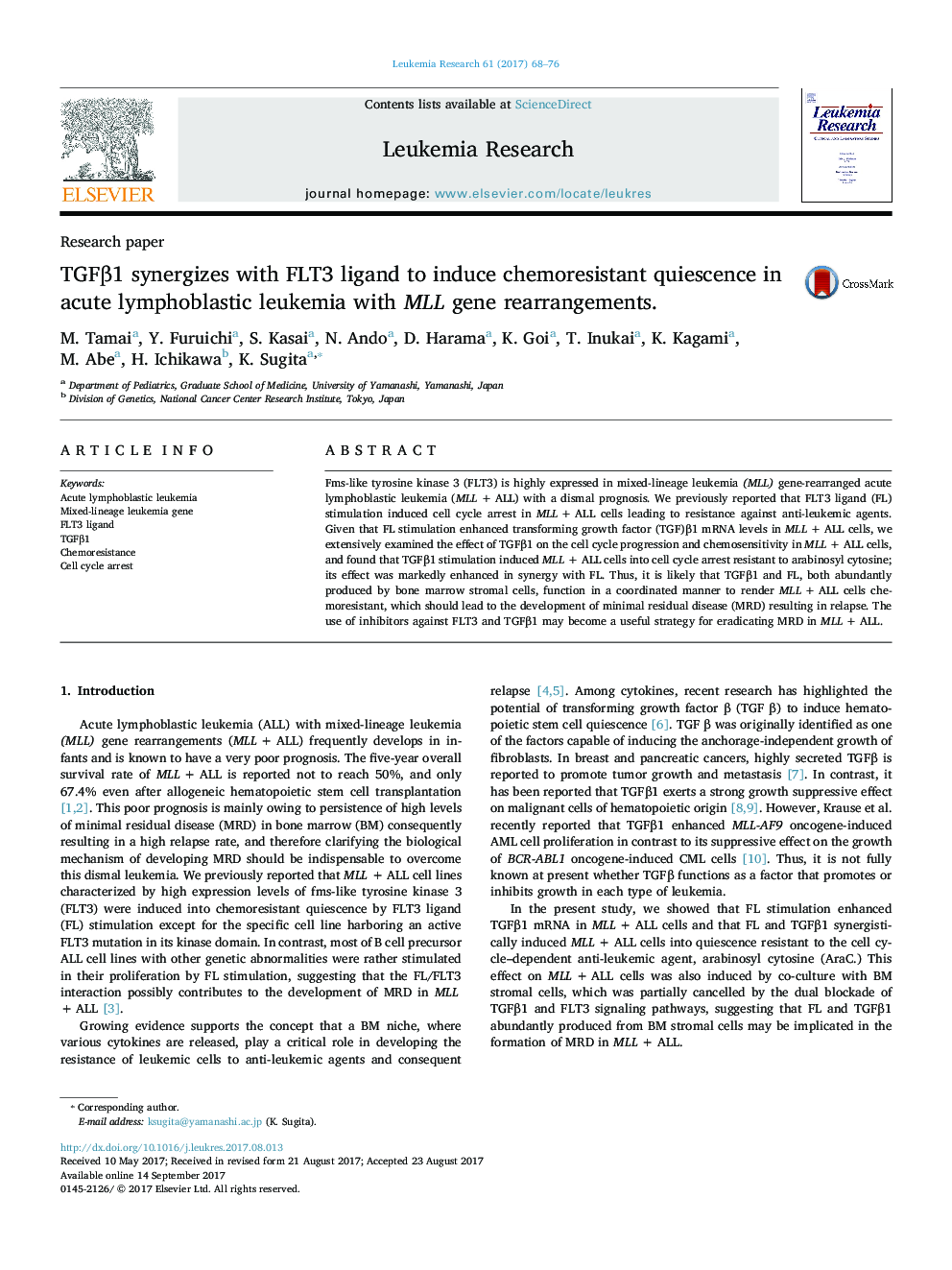| Article ID | Journal | Published Year | Pages | File Type |
|---|---|---|---|---|
| 5527773 | Leukemia Research | 2017 | 9 Pages |
â¢TGFβ1 mRNA is enhanced by FL stimulation in MLL + ALL cells.â¢TGFβ1 and FL synergistically induce MLL + ALL cells into cell-cycle arrest because of marked prolongation of p27 half-life.â¢Quiescence induced by TGFβ1/FL in MLL + ALL cells showed AraC resistance.â¢AraC resistance in MLL + ALL could be partially restored by inhibitors against receptors for TGFβ1 and/or FL.
Fms-like tyrosine kinase 3 (FLT3) is highly expressed in mixed-lineage leukemia (MLL) gene-rearranged acute lymphoblastic leukemia (MLL + ALL) with a dismal prognosis. We previously reported that FLT3 ligand (FL) stimulation induced cell cycle arrest in MLL + ALL cells leading to resistance against anti-leukemic agents. Given that FL stimulation enhanced transforming growth factor (TGF)β1 mRNA levels in MLL + ALL cells, we extensively examined the effect of TGFβ1 on the cell cycle progression and chemosensitivity in MLL + ALL cells, and found that TGFβ1 stimulation induced MLL + ALL cells into cell cycle arrest resistant to arabinosyl cytosine; its effect was markedly enhanced in synergy with FL. Thus, it is likely that TGFβ1 and FL, both abundantly produced by bone marrow stromal cells, function in a coordinated manner to render MLL + ALL cells chemoresistant, which should lead to the development of minimal residual disease (MRD) resulting in relapse. The use of inhibitors against FLT3 and TGFβ1 may become a useful strategy for eradicating MRD in MLL + ALL.
